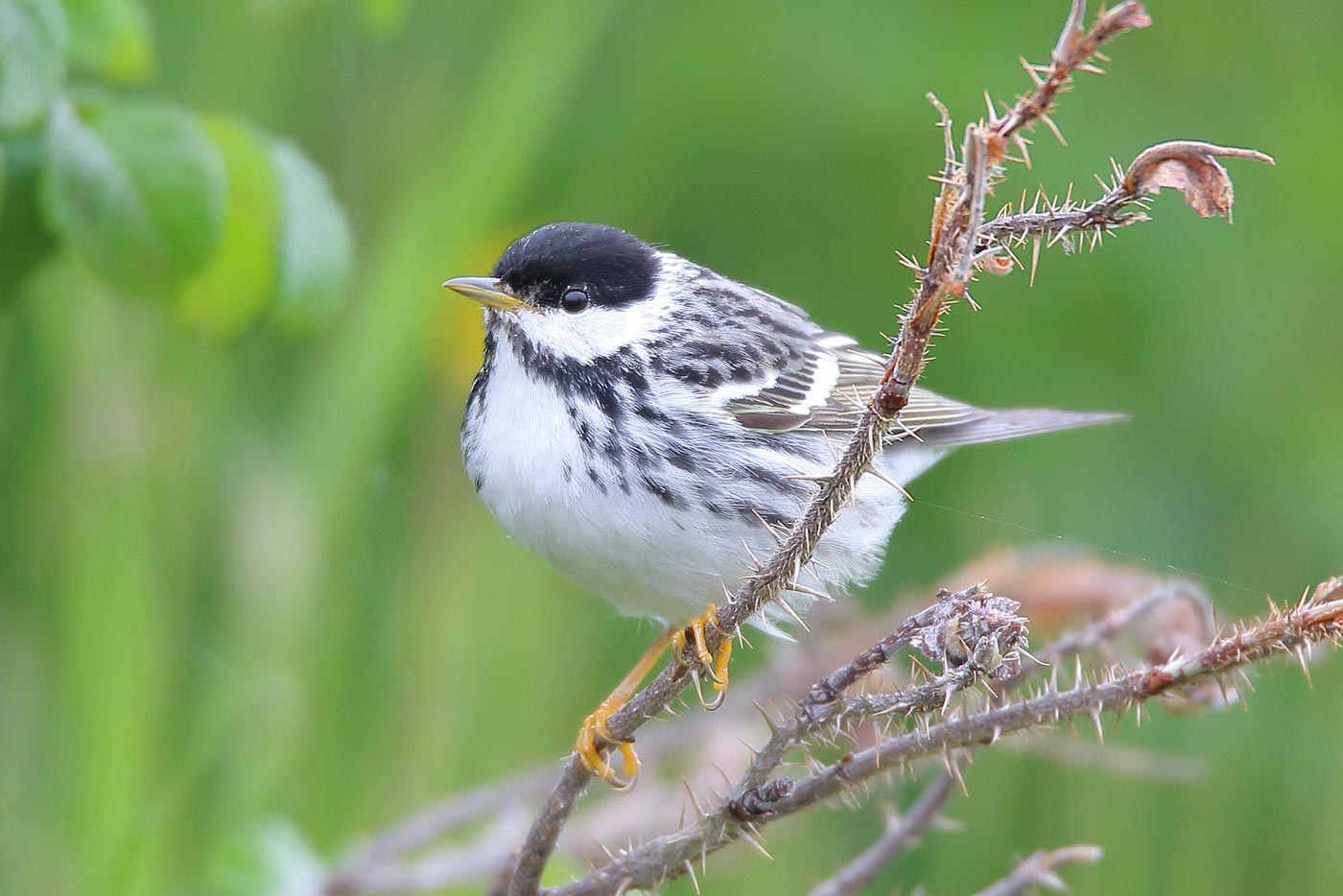A new study demonstrates how climate change and habitat loss have combined to drive a 600-km northward shift in the breeding range of Blackpoll Warbler over the past 45 years.
Using stable hydrogen isotope analyses of feathers from historical museum specimens and contemporary samples obtained in the Colombian Andes, Camila Gómez and her colleagues showed that Blackpoll Warblers wintering in the country are coming from further afield than ever before.
The finding is consistent with predictions of changes in the geographical range of Blackpoll Warbler and other species caused by warming climate scenarios and habitat loss in the southern boreal forests of North America, signalling that each is a likely contributing factor to the observed declines.

Blackpoll Warbler's breeding range has shifted 600 km north in four decades, with climatic warming and habitat loss in southern areas to blame (Scott Heron / Flickr).
The researchers do caveat their findings in that they cannot rule out alternative explanations, such as the shift in the wintering range of south-eastern breeders moving away from their study sites in the eastern foothills of the Colombian Andes and more northerly breeders moving into the same areas – particularly as rapid changes in wintering ranges are not unprecedented (such as Blackcap in Europe, or Rufous and Anna's Hummingbird in North America). However, due to a lack of land use changes in Colombia (cf Blackcap, which has taken advantage of garden bird feeding during its dramatic wintering range shifts), the team considers climate change and habitat loss on breeding grounds the most likely reasons for the observed changes.
The team concludes by saying that Blackpoll Warbler "is an iconic migratory species, and the decline of its southern and eastern populations does not only risk the loss of a unique portion of the genetic diversity of the species, but also loss of an integral part of boreal and tropical ecosystems", adding that the species "is not the only boreal species showing steep and worrying declines" and in turn may be "acting as a 'canary in the coalmine' alerting to changes that could affect the integrity of the boreal ecosystem".
Reference
Gómez C, Hobson K A, Bayly N J, Rosenberg K V, Morales-Rozo A, Cardozo P & Cadena C D. 2021. Migratory connectivity then and now: a northward shift in breeding origins of a long-distance migratory bird wintering in the tropics. Proceedings of the Royal Society B. DOI: https://doi.org/10.1098/rspb.2021.0188


